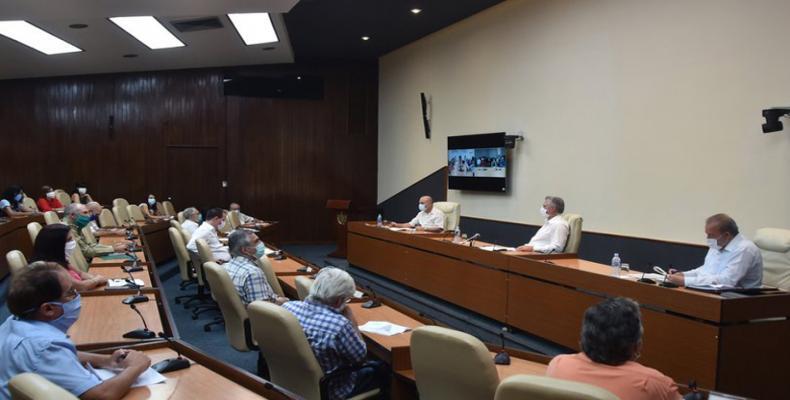Havana, May 7 (RHC)-- Cuban President Miguel Díaz-Canel stressed on Thursday that "Cuban science does not stop and continues to contribute" to the battle that Cuba has undertaken against COVID-19.
Meeting in Havana with the group of scientists and experts who are leading the activities in science and technological innovation in the fight against the pandemic, the Cuban president stressed that every week new contributions are presented, which will leave a very positive balance in the field of Public Health and in the recovery strategy that the island has set for itself.
During this meeting -- which like the previous ones -- was very encouraging. Dr. Ileana Morales Suarez, Director of Science and Technological Innovation of MINSAP, explained about the study of prevalence of COVID-19 which began this week and will provide a general characterization of the evolution of the prevalence of infection for SARS-Cov2, possibilities of new infections derived from community transmission and percentages of asymptomatic individuals.
The sample, she said, includes 15 provinces, 70 municipalities, 260 clinics, 1,300 homes and 3,975 people to be studied. The MINSAP directive also updated the partial results on the use of the monoclonal anti-CD6 antibody and the CIGB 258 peptide in patients with COVID-19. With the first of these, 77 patients have been treated, 57% of whom have already been discharged from hospital, and the survival rate for severe cases is 85%.
CIGB 258 has been used in 31 patients, 42% have been discharged, and the survival rate is 80.6%.
With respect to these results, Díaz-Canel commented on the impact of this pandemic on the collapse of intensive care units in many nations, which has not happened in Cuba, largely due to successful research in Cuban biotechnology.
During the exchange with representatives of the scientific community, he learned about the 22 clinical studies and trials being conducted to confront COVID-19, a situation never before seen in our country. In particular, the antiviral effects of the CIGB-210 and CIGB-300 on coronavirus infection were assessed, two promising proposals.
Likewise, it was reported the beginning of a project for the attention of patients recovered from this disease, which can leave pulmonary affections.


